Why Paying Homage is Important
Wherever you are in the world, chances are pretty good that you may have stepped on this country's soil though you may have never travelled here. You may not even have heard of these parts, and it's quite likely many of you cannot immediately and independently identify it on a map, even if your life depended on it.
It's okay though, we're usually cool sports about it, and many of us embrace the opportunity to positively share about our land, people and culture, and so I'll do just that right now.

The country of which I speak, Trinidad and Tobago, is home to the world's largest natural deposit of asphalt, one the key raw materials used for paving roads.
According to World Atlas, "Asphalt lakes or pitch lakes are tar pits that form when a type of petroleum called bitumen is forced from underground up to the Earth's surface. Usually occurring along fault lines, the bitumen pools at the surface and the lighter elements vaporize, leaving a pool of natural asphalt."
Atlas Obscura describes the Trinidad and Tobago La Brea pitch lake as: "A bizarre tract of semisolid asphalt strung with oily channels and pools." The lake, it says, spans some 100 acres and plunges to 250 feet deep.

There are other pitch lakes or tar pits in the US and Venezuela, though I do not believe that any have been identified as larger or more significant than Trinidad's.
Incidentally, the Trinidad pitch lake is called La Brea, Spanish for the pitch or the tar, not the most inventive name, but it gets to the point, right?
Because of the size and volume of its pitch lake, Trinidad and Tobago, has exported asphalt and bitumen around the world for road paving and other uses.

On the island of Trinidad, however, the pitch lake enjoys a rich legend, which speaks of a tribe erased from the face of the Earth because of its disrespect for the gods and fellowmen
This story was told to me many years ago by an old, blind sculptor, Samuel Waldrond, now deceased, who lived in a nearby community, some distance away from the lake.
Mr. Waldrond told the story as it was told to him as a little boy, and now, I am passing the tale on to you. Here goes:
I'd like say a quick thank you to my kind sponsors who have helped to bring visibility to my work and to all the readers who have passed this way and read and interacted with the content I've been sharing. I appreciate your time and your feedback, and I truly hope that I can continue to roll out content worthy of your support.
After the gods created man and gave him the freedom to roam the Earth, and to plant and garden, and to fish and harpoon, and to hunt other animals and to name himself king, they needed a way to communicate with man, to send messages to man, to commend him when things nice, and to send warnings to him, to let him know to get his act together when he stepping out of line.
And so, the gods created birds and gave them feathers, so they could fly high, fly in formation, crest the heavens, listen to what the gods were saying and when they landed on the ground to eat, to let man know, things nice or things not so nice.

Now, as in all things, the gods didn’t settle on their favoured bird easily. It wasn’t a one and done situation at all, at all. In fact, the gods created many different birds before they found the ideal candidate.
The first bird they created, the vulture, flew really high, thousands and thousands and thousands of feet high. The vulture flew so high, if you shielded your eyes and looked up into the sky, you still wouldn’t see it.
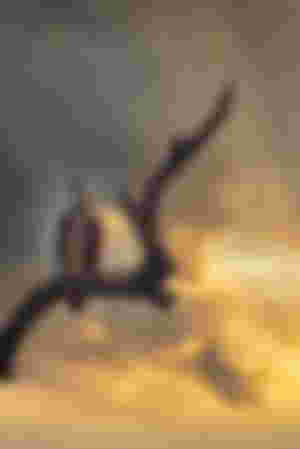
But the vulture had a weakness. Instead of performing its functions properly, observing man and reporting to the gods and then taking messages from the gods back to man, the vulture was always distracted, always scouting for food. And so, because of its greed, the vulture fell from grace real fast.
As the old people would say, before you could blink twice and say Jack Robinson, the vulture was toppling, brought low, condemned to scavenge for all eternity, and scorned by gods and man.
The gods then created the hawk and blessed it with sharp eyesight so that it could fly high in the heavens and spy on every living thing that was moving down below on Earth.

This worked fine for a while, and the gods commended the hawk’s attention to detail. But then all of that praise went to the bird’s head and the hawk became quite pompous and would only deliver long winded messages to the gods bogged down with trivial and unimportant details that put even the gods to sleep.
The gods needed another bird, one that was more lively. And so they created the macaw. The macaw was a beautiful bird, lovely bright feathers. It was less greedy than the vulture, less haughty than the hawk, and it was quite friendly, perhaps too friendly. And like so many other creatures created by the gods, the macaw was flawed. He loved to gossip.
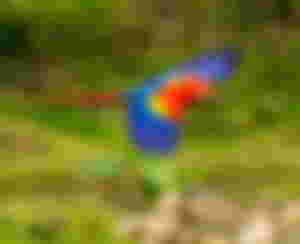
I might mention here the Trinidadian term maco derives from macaw. A maco is someone who is nosey, snoopy, always prying into the affairs of others
The macaw often eavesdropped on the gods and repeated their conversations word for word to the humans. This was unacceptable to the gods. The macaw was like a ticking time bomb. The gods worried that one day, the bird’s tongue would slip, and it would lead humans to the secret gateway to heaven, turning the sacred rite of passage into a thoroughfare for every Tom, Dick and Harry. To prevent this from happening, the gods wiped the macaw’s memory and banned the flamboyant bird from heaven.
Finally, the gods created the hummingbird, the jewel of the sky, gave it wings that barely shimmered when it moved, and the ability to zip around at lightning speed and to hover in the sky in one spot as it relayed messages from gods to man and from man to gods. The gods were pleased.
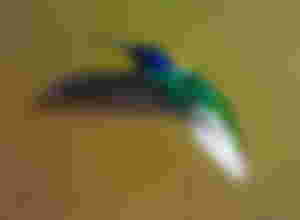
And so it was that the hummingbird one day delivered grave warnings to the chief of the native Chaima tribe that made its home in the heart of an island, in the heart of the Atlantic Ocean, near the Equator, at the heart of the Earth itself.
The gods were displeased that after all the things they blessed man with, the best thing he could find to do with his time was to fight.
Men fought for everything. When they hunted, they fought for the best cut of meat. When they gardened, they fought for the best produce. They fought to build their homes on plots of land with the best vantage point.
And though the Earth on which they walked was only a loan from the gods, men fought each other for that too, claiming ownership over that which was here long before they came and which will be here long after they leave and gone.
They fought and fought and fought so bitterly, that the gods decided enough was enough. And so they sent the hummingbird with a warning, a short message, five words: Ease things up or else.
And the hummingbird, dutifully, flew to Earth, flitting from camp to camp, and whispering to kings and chiefs that peace was a must, the gods had mandated it, man had to clean up his act or else.
The kings listened. And as was the norm with most leaders, some promised to reflect on the gods’ message, some pretended they didn’t understand, some acted like they forgot, and some flat out refused to listen to anything the gods had to say.
One king, the leader of a tribe called the Chaima, scoffed as the hummingbird hovered and buzzed its message.
“Why should I listen to anything the gods have to say?” he snarled. “I am king! If the gods want to warn me, they could do so for themselves!”
And without hesitation, the savage king slaughtered the hummingbird, and added its beautiful feathers to his headdress.
He then went out, the bright feathers glistening over his crown, and summoned his warriors.
“Tonight,” he roared. “We go to battle!”
Later that evening, the Chaima attacked and slaughtered their neighbors- man, woman, and children- showing no mercy to women, the elderly or the children, and leaving behind no witnesses. Then, drunk with blood lust, the Chaima partied like there was no tomorrow, and indeed, for them there was none.
The gods were furious. If man could attack their messenger, they fumed, and that insolence went unanswered, then where would mankind stop?
And so, the gods resolved to act swiftly with retribution that the world would witness and remember, and that night, as the Chaima partied, the Earth opened up and swallowed them whole, leaving behind no witnesses, and showing as much mercy to the tribe as their warriors had shown their enemies.
The next morning, the village was gone, and where once stood a proud and mighty tribe there was nothing but a murky, black tar pit that, if you stood on the soil for too long, it would swallow you under.

This is the tale I was told by a blind man who learned of the price of selfishness, cruelty and irreverence as a little boy- a price of being cut off from the gods, cut off from mankind, wiped from the Earth, and erased so completely that there is nothing, no evidence is left behind of your existence.
And so, my dear friends, you may one day visit my country and the La Brea pitch lake. If you do, the tour guides will likely retell this very story to you, albeit in their own words. However, even if you never pass by this way, whenever you step again onto the street or travel across the tarmac in an airport, I ask only that you take some time to think about our presence of this Earth and ways we can better respect the natural environment, each other, and- whatever your religious persuasion- the gods.
Have a great day, everyone.

Article Sources:
https://www.worldatlas.com/articles/the-five-natural-asphalt-lake-areas-in-the-world.html
https://www.atlasobscura.com/articles/nature-s-time-capsules-a-guide-to-the-world-s-pitch-lakes
Photo Sources:



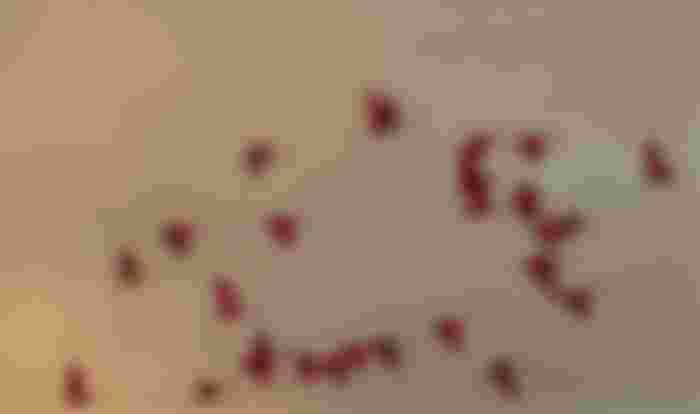
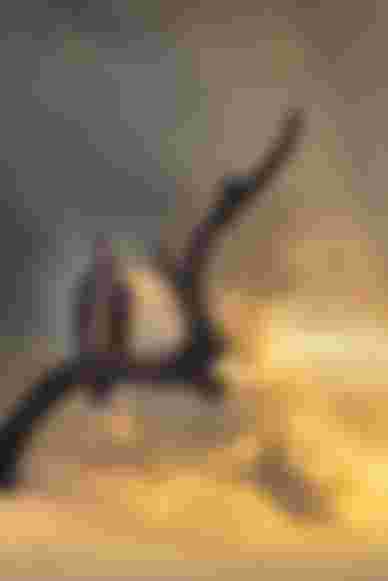
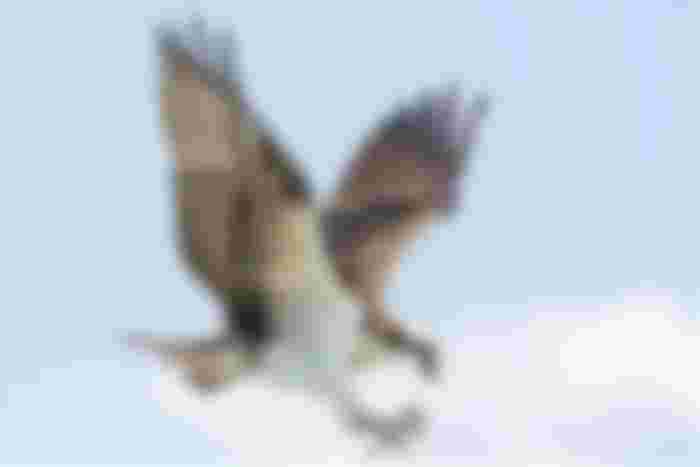
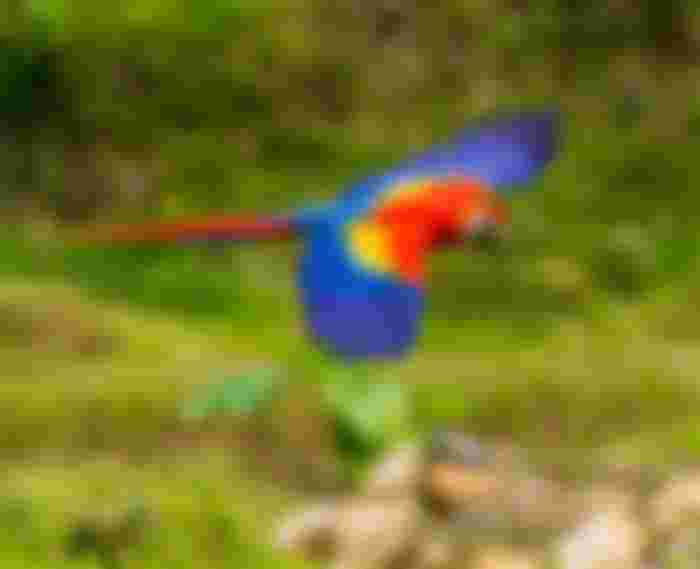
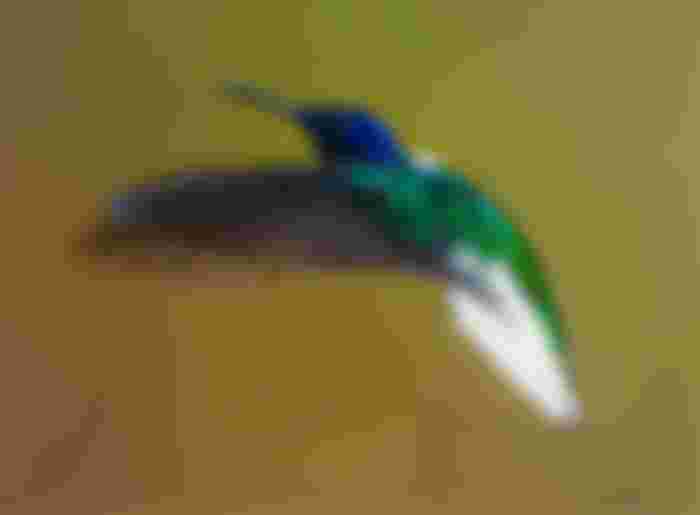


Wow... this certainly can make a nice novel or movie drama....It looks very fictional